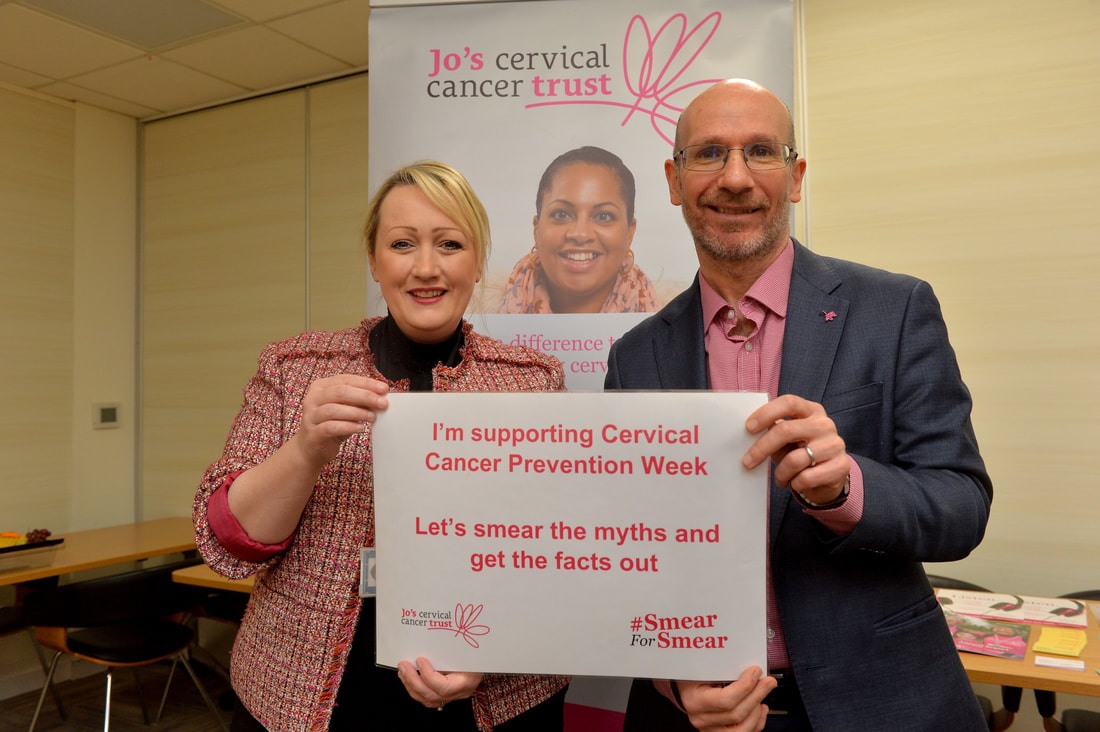|
Rebecca Evans AM is supporting Jo’s Cervical Cancer Trust to tackle the myths and stigma which surround the common virus HPV and get the facts out. Last year, Wales led the way in moving to a far more sensitive HPV test, which will save lives - but it also means that many more women will be told they have HPV. Rebecca Evans AM is teaming up with Jo’s Cervical Cancer Trust to tackle the misconceptions about the virus. Rebecca Evans AM said: “ In the majority of cases, HPV infection goes away without doing the body any harm. Sometimes it causes cells to change which, if not treated, could develop into cervical cancer. The new test for HPV is far more accurate than anything we have had before, and it is estimated to prevent almost 500 diagnoses of cervical cancer every year.” New research conducted by Jo’s Cervical Cancer Trust has found a third of women consider HPV a taboo topic and would not want anyone to know if they had it. A quarter haven’t heard of HPV and one in five would feel embarrassed if they were told they had the virus. Calls to the charity’s Helpline about HPV have already risen 50% over the past year. Robert Music, Chief Executive, Jo’s Cervical Cancer Trust: “HPV can be confusing but it is nothing to be ashamed of. 80% of us will get at least one type of HPV in our lives and in most cases the immune system will get rid of the infection without it causing any harm. We need to get the facts out about HPV and get rid of harmful myths and stigma around this really common virus.” HPV facts ● At some point in our lives, 4 out of 5 (80%) of us will get at least one type of HPV. In most cases the immune system will get rid of it. Around 90% of HPV infections clear within 2 years ● HPV infections do not usually have any symptoms, so you may not even know you had it. ● HPV lives on our skin, so it is easy to get and difficult to completely protect against. ● There are over 200 types of HPV. About 40 HPV types affect the genital areas ● Most genital HPV types are low risk. They can cause conditions like genital warts ● About 13 HPV types are linked to cervical cancer. These types are called high-risk HPV. ● You are at risk of getting HPV from your first sexual contact, whatever that is – it doesn’t have to be penetrative sex ● We can have HPV for a long time without knowing about it, so it is hard to know when we got HPV or who we got it from ● Cervical screening (a smear test) can find a high-risk HPV virus and changes early, before it develops into cancer. ● For more information:https://www.jostrust.org.uk/information/hpv Comments are closed.
|
|

